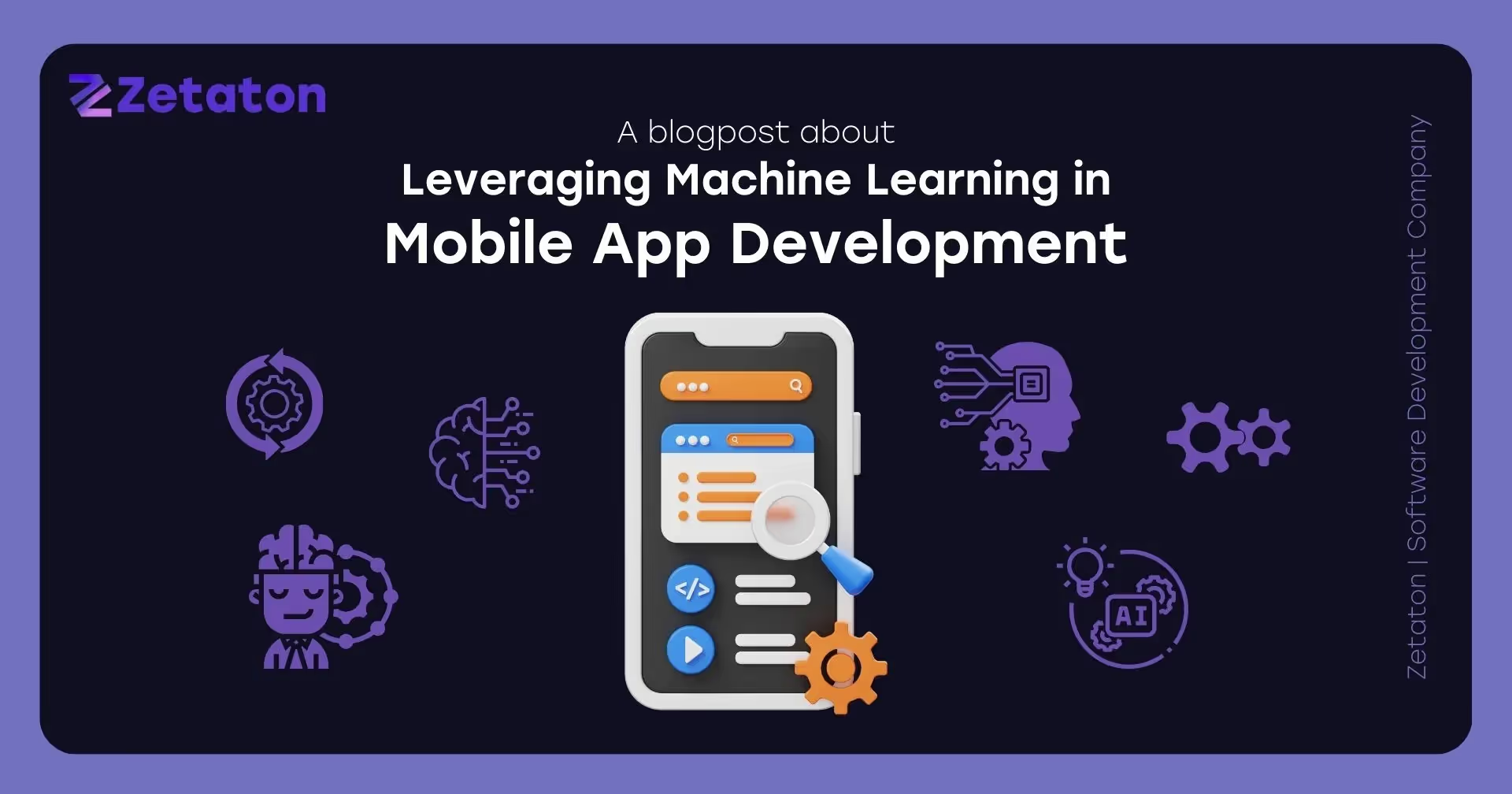
The world of mobile app development is changing at lightning speed, and one of the biggest game-changers is Machine Learning (ML). From personalizing user experiences to improving security, ML is transforming how apps function. But what exactly is it, and how can developers leverage it to create smarter, more intuitive mobile apps? Let’s dive in!
At its core, machine learning is a branch of artificial intelligence (AI) that enables software to learn from data and improve over time—without being explicitly programmed. Think of it like teaching a child to recognize objects: you show them multiple pictures of a cat, and over time, they learn to identify one without needing an explanation every time.
ML relies on algorithms and statistical models to identify patterns in data and make predictions or decisions without direct human intervention. This ability to learn from past interactions makes ML an essential tool for mobile app developers aiming to enhance app functionality and usability.
Traditional programming relies on explicit rules and conditions, whereas ML enables an app to identify patterns and make decisions based on historical data. Instead of telling an app how to behave in every scenario, ML lets it adapt based on real-time input.
For instance, a traditional program for spam detection would require a manually written list of spam keywords. In contrast, an ML-based spam filter learns from thousands of real-world spam and non-spam messages, continuously refining its detection capabilities.
Ever wondered how Netflix knows exactly what show you’d love next? ML analyzes user preferences and behavior to deliver hyper-personalized experiences, making apps smarter and more engaging.
ML-driven fraud detection algorithms can flag suspicious activities, making banking and e-commerce apps much safer. Biometrics like facial recognition and fingerprint scanning also rely heavily on ML for authentication.
ML can predict user needs even before they realize them! For example, fitness apps can anticipate when a user is likely to work out based on their habits and send reminders accordingly.
NLP powers voice assistants, chatbots, and text recognition, enabling apps to understand and respond to human language more naturally.
From face filters on Snapchat to barcode scanning, ML enables apps to "see" and process images, making interactions more seamless.
Siri, Alexa, and Google Assistant—these AI-driven helpers learn and evolve based on your interactions. Businesses also integrate chatbots in apps for instant customer support.
Shopping apps like Amazon and social media platforms like Instagram use ML to recommend products, posts, and videos, keeping users engaged.
Voice-based searches, transcription services, and real-time language translation are all made possible through ML-driven speech recognition technology.
Machine learning models need massive amounts of user data, raising privacy concerns. Developers must ensure data encryption and compliance with privacy laws like GDPR and CCPA.
Unlike powerful cloud servers, mobile devices have limited processing power. Optimizing ML models for mobile deployment is crucial to maintaining speed and efficiency.
ML models require tons of high-quality data for training, which can be expensive and time-consuming. Developers often rely on pre-trained models to overcome this hurdle.
When it comes to implementing machine learning in mobile app development, Zetaton stands out as a leading software development company. With expertise in AI-driven solutions, Zetaton helps businesses integrate cutting-edge ML capabilities into their apps, ensuring enhanced user experiences, increased security, and smart automation. Whether it's personalizing content, improving predictive analytics, or enhancing customer interactions, Zetaton leverages ML to drive innovation in mobile applications.
Machine learning is no longer a futuristic concept—it’s shaping the mobile apps we use daily. From personalization and security to automation and efficiency, ML is redefining how apps interact with users. As the technology advances, we can expect even smarter, faster, and more intuitive applications in the coming years. If you’re a developer, now is the time to start integrating ML into your apps to stay ahead of the competition! And with Zetaton’s expertise in AI-driven app development, businesses can harness the full potential of machine learning to create next-gen mobile experiences.